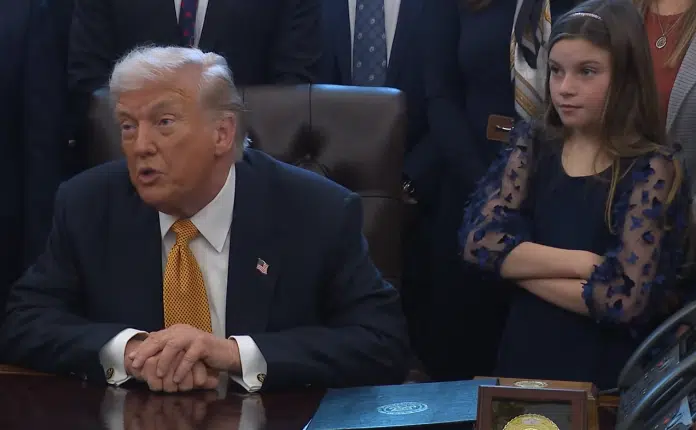
With less than two months to go until the first votes will be cast in the 2024 presidential nominating contest, with the Iowa caucus set for Jan. 15 and the New Hampshire primary set for Jan. 23, former President Donald Trump remains ahead with a commanding lead over his rivals for the Republican nomination, leading by an average of 47 points over his nearest rivals Florida Republican Gov. Ron DeSantis and former South Carolina Republican Gov. Nikki Haley, according to the latest average of national polls compiled by RealClearPolitics.com.
In the latest reading, Trump garners an average of 61.3 percent, DeSantis 13.8 percent and Haley 9.9 percent.
In fact, through the entire cycle so far, there have been 210 polls taken, and Trump led 209 of them, or 99.5 percent of them. A single CNN poll taken March 2023 had DeSantis leading by a couple points, 39 percent to 37 percent, and even that one came with an asterisk as Trump led overall in the poll 40 percent to 36 percent but when whittled down to registered voters at time, DeSantis crept ahead.
Otherwise, Trump has been leading the race by a lot. Registered voter polls, polls of U.S. adults, it doesn’t matter, the answer is clear and resounding: Republicans want Trump to be their nominee in 2024, setting up a rematch between him and incumbent President Joe Biden.
Now, sometimes a candidate can poll very well nationally but when you get to the business of the state-by-state primaries and caucuses, a difference of opinion can emerge. However, that does not appear to be the case this time around, with the former president showing commanding leads in Iowa, New Hampshire and South Carolina, according to the RealClearPolitics.com averages of polls compiled.
The Iowa caucuses date back to 1972 and the South Carolina primary began in 1980, and the New Hampshire primary began in 1916. All stand as early gauges of how voters feel about the candidates running, and their determinations have proven to be very influential on the process.
In Iowa, Trump leads by an average of 29.7 points, 47 percent to DeSantis’ 17 points and Haley’s 14 points. In New Hampshire, Trump leads by 27 points, 45.7 percent to Haley’s 18.7 percent, former New Jersey Republican Gov. Chris Christie with 11.3 percent, and DeSantis with a distant 7.7 percent. And in South Carolina, Trump leads by 30 points, garnering 49.3 percent, Haley with 18.8 percent and DeSantis with 10.5 percent.
That’s obviously bad news for DeSantis and Haley, as no Republican candidate has been nominated in the modern primary process going back to 1976 without having won either Iowa or New Hampshire. Two Democrats, Bill Clinton in 1992 and Joe Biden in 2020, have managed the feat, coming back to win the nomination after winning in South Carolina.
In the case of Republicans and 2024, Trump appears poised to win all three easily. In fact, in all three states, Trump has led every single poll taken, or 100 percent of them. Now, obviously, anything can happen, but these outcomes lead to an almost 100 percent certainty that Trump will in fact end up prevailing in these contests, and easily win the nomination via the primary process. Usually, only sitting incumbent presidents are able to pull that off, but three years out of office, and Trump still has a lot of pull with Republican voters. They want him.
And yet, once again, anything can happen. Democratic prosecutors in Washington, D.C., New York and Georgia are prosecuting Trump for a myriad of crimes that Republican voters (and general election voters for that matter) apparently could give two whits about, but which the Republican establishment might yet attempt to use to deny Trump the nomination, disenfranchising millions of voters in the process who would suddenly become free agents.
Many of them are exclusively Trump voters, and could stay home, or if Trump opted for an independent bid (harkening back to Theodore Roosevelt’s 1912 run), vote for him that way. Others might vote for Robert Kennedy, Jr. instead, rather than reward the upstart GOP nominee who replaced Trump via an undemocratic party leadership maneuver.
And Republicans would be annihilated at the polls in Nov. 2024. Even a small percent of voters either staying home or voting third party could be enough to enable Biden, the incumbent, to win by default, and potentially shattering GOP hopes to hold onto the U.S. House of Representatives and reclaim a majority in the U.S. Senate.
Republican Party leaders might not want Trump, and might even want to replace him with someone, anyone else, but as the saying goes, be careful what you wish for.
Robert Romano is the Vice President of Public Policy at Americans for Limited Government Foundation.






